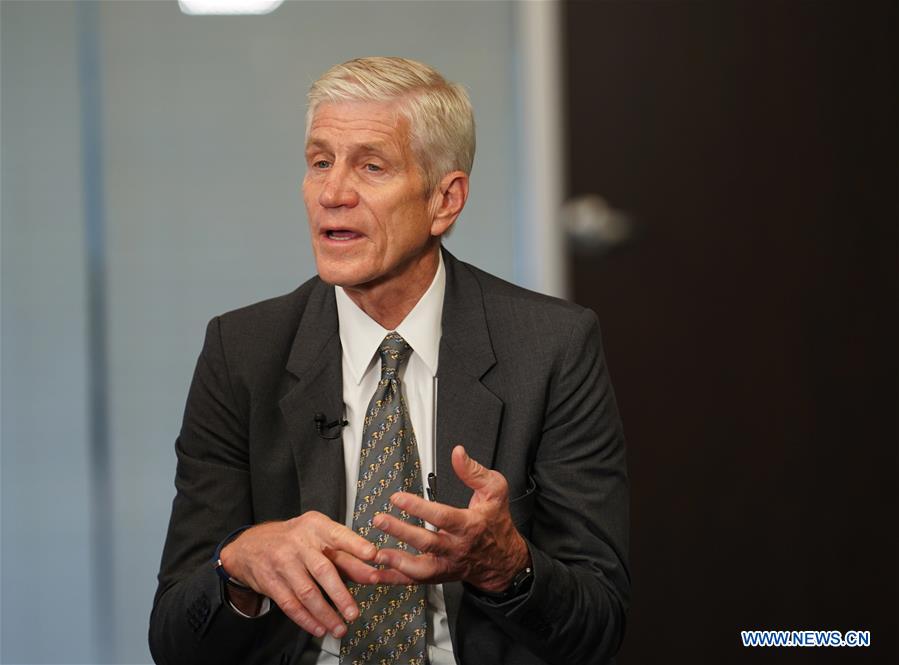
Bob Margevicius, a member of the board of directors of the U.S. Bicycle Product Suppliers Association, receives an interview with Xinhua in Washington D.C., the United States, May 23, 2019. (Xinhua/Liu Jie)
WASHINGTON, June 11 (Xinhua) -- China remains the best source of bikes for U.S. companies, and it is hard for them to turn quickly to alternatives as added tariffs are altering the global supply chain, an industry insider has said.
"I find that the Chinese companies have done an excellent job in making capital investments in automation and new technologies, and in finding ways to improve the efficiency and the productivity of the products that they're producing," Bob Margevicius, a member of the board of directors of the U.S. Bicycle Product Suppliers Association, said in a recent interview with Xinhua.
"It's very hard for us to look at other places" and replicate China's work, he said, citing such factors as quality, cost, manufacturing cluster, and capability for delivery and to scale.
For the U.S. bike industry and many others, Margevicius said they are "going to take two steps back or maybe three steps back just to re-establish a footprint somewhere" before they can make investment to optimize the supply chain and improve productivity for capability that have existed in China for many years.
"It's disheartening for me," he added.
The U.S. bike industry is suffering from ongoing trade tensions that Washington started with Beijing, during which the world's largest economy last year imposed additional 10-percent tariffs on 200 billion U.S. dollars of Chinese imports, including completed bikes and some spare parts, and recently raised them to 25 percent, which have taken a toll on the bike business.
According to Margevicius, the number of completed bikes that the United States imports from China annually has been quite stable, ranging between 14 million and 15 million, and accounting for over 90 percent of all bikes imported in the nation.
However, during the first quarter this year, there was a decline of 450,000 bikes due to higher prices caused by the first wave of extra tariffs on the product. The second wave is predicted to make things worse.
The tariffs will "need to be passed on directly to the consumer" and that "will have an impact," said Margevicius, who estimated that the extra 15-percent tariffs would increase the overall retail prices for bikes by between 10 percent and 12 percent and contribute to a further decline in sales.
Margevicius noted that there has been an initiative among U.S. bike companies to seek alternative sources in Southeast Asia and relocate their production there amid a readjustment of the global supply chain, adding that it would take years to complete the process, which would be more challenging for mass market brands to initiate.
"It would be very difficult for them to transition and move out. And a lot of that just has to do with the sheer volume. China has provided an ability for companies to scale ... The manufacturing cluster is located in China," Margevicius explained.
"Companies that have large scale and large quantities may need to remain in China until they're able to establish another manufacturing base" to meet their needs, he said, adding that he thinks "those companies will continue to buy from China."
Margevicius, also executive vice president of Specialized Bicycle Components, a large U.S. importer and a brand selling bikes worldwide, warned that labor and land costs, which are relatively low in Southeast Asia, would go up and even become an issue if bikes businesses swarm there.
What makes a decision to move production out of China even more difficult is "a wonderful relationship" between U.S. bike businesses and their Chinese suppliers, Margevicius noted.
"They've provided us with great products, high quality at very competitive prices, delivered on time," Margevicius said. "I think the relationship that we've built ... has been excellent, and we've relied a lot on China to provide us with great products."